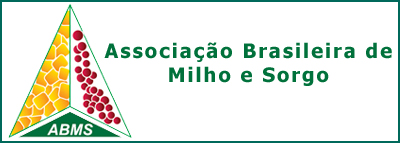CHALLENGES OF MAIZE BREEDING UNDER TROPICAL CONDITIONS OF BRAZIL
DOI:
https://doi.org/10.18512/rbms2022vol21e1258Resumo
Tropical maize production represents 49% of the global maize harvested area. In terms of productivity, the annual increase rate in tropical regions is twice as higher as the increase rate in temperate regions. The increase in maize grain yield was expressive in the last 41 years in Brazil. Such achievement was possible due to the joint efforts of many areas of science, especially, plant breeding. Although maize breeding success, many are the challenges faced by the maize breeders to develop high-yielding maize hybrids. Tropical conditions provide more intense challenges in terms of pests and diseases pressures, and above all, water deficit conditions. In addition, the constant increase of breeding programs costs requires the development and application of new techniques to improve the genetic gain per time unit, increasing the maize breeding programs’ efficiency. This review discusses the main challenges faced by maize breeding programs under tropical conditions, highlighting topics related to the development of maize hybrids for first and second growing seasons; breeding for biotic and abiotic stresses conditions; specialty maize breeding; use of transgenic in maize; and genomic tools to maximize the efficiency of maize breeding programs under tropical conditions.
Downloads
Publicado
Como Citar
Edição
Seção
Licença
Autores que publicam nesta revista concordam com os seguintes termos:- Autores mantém os direitos autorais e concedem à revista o direito de primeira publicação, com o trabalho simultaneamente licenciado sob a Creative Commons Attribution License que permitindo o compartilhamento do trabalho com reconhecimento da autoria do trabalho e publicação inicial nesta revista.
- Autores têm autorização para assumir contratos adicionais separadamente, para distribuição não-exclusiva da versão do trabalho publicada nesta revista (ex.: publicar em repositório institucional ou como capítulo de livro), com reconhecimento de autoria e publicação inicial nesta revista.
- Autores têm permissão e são estimulados a publicar e distribuir seu trabalho online (ex.: em repositórios institucionais ou na sua página pessoal) a qualquer ponto antes ou durante o processo editorial, já que isso pode gerar alterações produtivas, bem como aumentar o impacto e a citação do trabalho publicado



